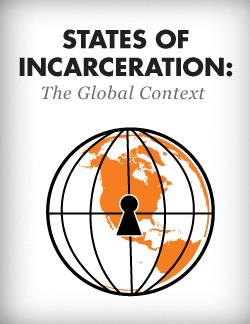New report: The Racial Geography of Mass Incarceration
New report answers the question: to what degree do the people in prison in a given county resemble the people who live in the surrounding county?
July 15, 2015
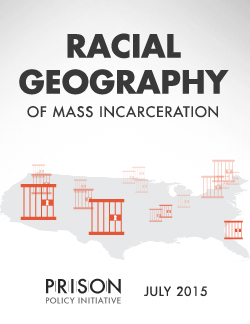 Our newest report asks and answers the question for every county and state in the nation: to what degree do the people in prison in a given county resemble the people who live in the surrounding county?
Our newest report asks and answers the question for every county and state in the nation: to what degree do the people in prison in a given county resemble the people who live in the surrounding county?
In partnership with Daniel Kopf of our Young Professionals Network, we analyzed U.S. Census data on the race and ethnicity of people incarcerated in given counties with the corresponding data for the surrounding county.
The racial disparities underlying the United States’ record growth in imprisonment are well documented, as is the fact that the prison construction boom was disproportionately a rural prison construction boom. While these two characteristics have been studied separately, there has been, until now, no national effort to analyze each state’s decision to engage in mass incarceration through a racial geography lens.
This report fills a critical gap in understanding the mass incarceration phenomenon: it offers a way to quantify the degree to which, in each state, mass incarceration is about sending Blacks and Latinos to communities with very different racial/ethnic make-ups than their own.
Our findings include:
- Entirely separate from the more commonly discussed problem of racial disparities in who goes to prison, this data addresses a distressing racial and ethnic disparity in where prisons have been built.
- Stark racial and ethnic disparities exist between incarcerated people and the people in the county outside the prison’s walls.
- The transfer of Black and Latino incarcerated people to communities very different than their own is a national problem not confined to select states.
- Hundreds of counties have a 10-to-1 “ratio of over-representation” between incarcerated Blacks and Blacks in the surrounding county — meaning that the portion of the prison that is Black is at least 10 times larger than the portion of the surrounding county that is Black.
We anticipate this analysis will be most useful to address two questions:
- Why do some states struggle to hire sufficient Black and Latino correctional staff?
- To what degree does prison gerrymandering — the practice of using U.S. Census counts of incarcerated people as residents of the prison location for legislative districting purposes — have a racial character in particular states?
The reports contains:
- Graphs and maps showing the frequency of racial/ethnic overrepresentation.
- Interactive tables and graphics to allow further data exploration and use of the data in new ways.
- Summaries of how the racial and geographic disparities stack up by state.
The report is available at: http://www.prisonpolicy.org/racialgeography/
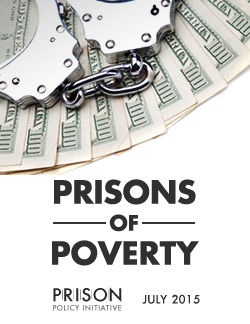
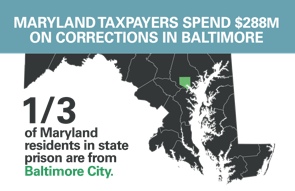 Based on data recently made available by a new Maryland law,
Based on data recently made available by a new Maryland law, 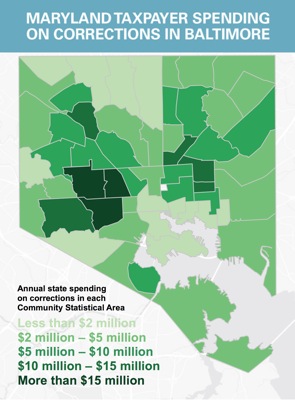 “This report combines never-before analyzed geographic data with key metrics on community well-being to allow policymakers to make informed choices about how best to allocate precious taxpayer resources,” said Peter Wagner, executive director of the Prison Policy Initiative.
“This report combines never-before analyzed geographic data with key metrics on community well-being to allow policymakers to make informed choices about how best to allocate precious taxpayer resources,” said Peter Wagner, executive director of the Prison Policy Initiative. 